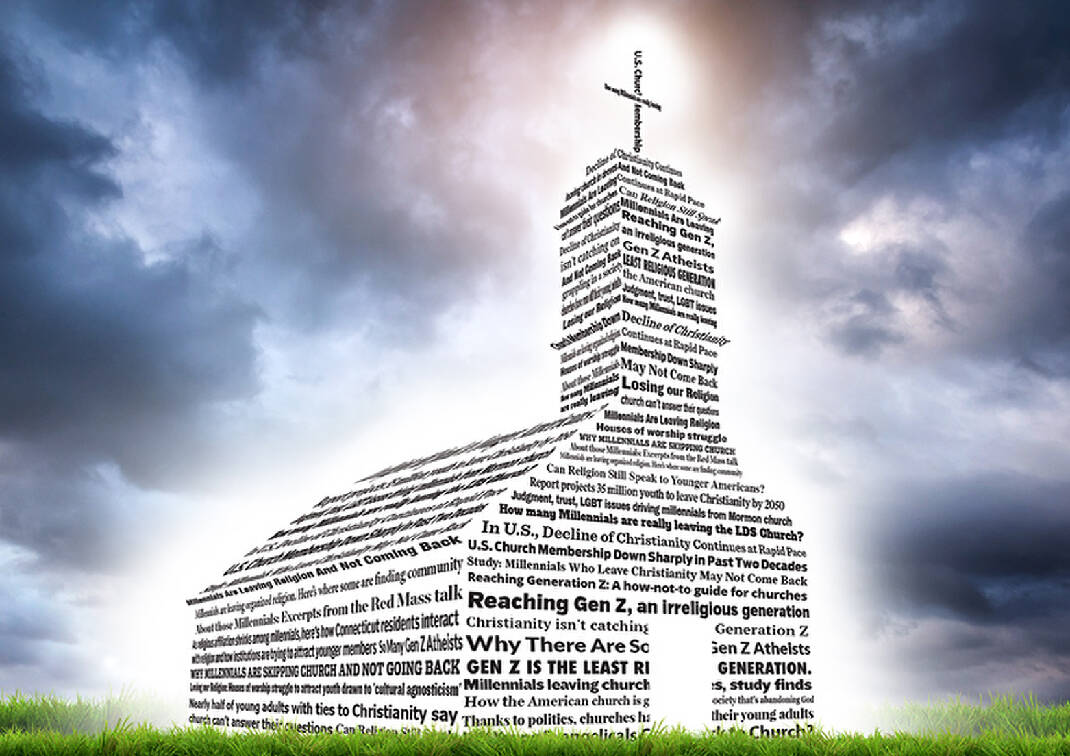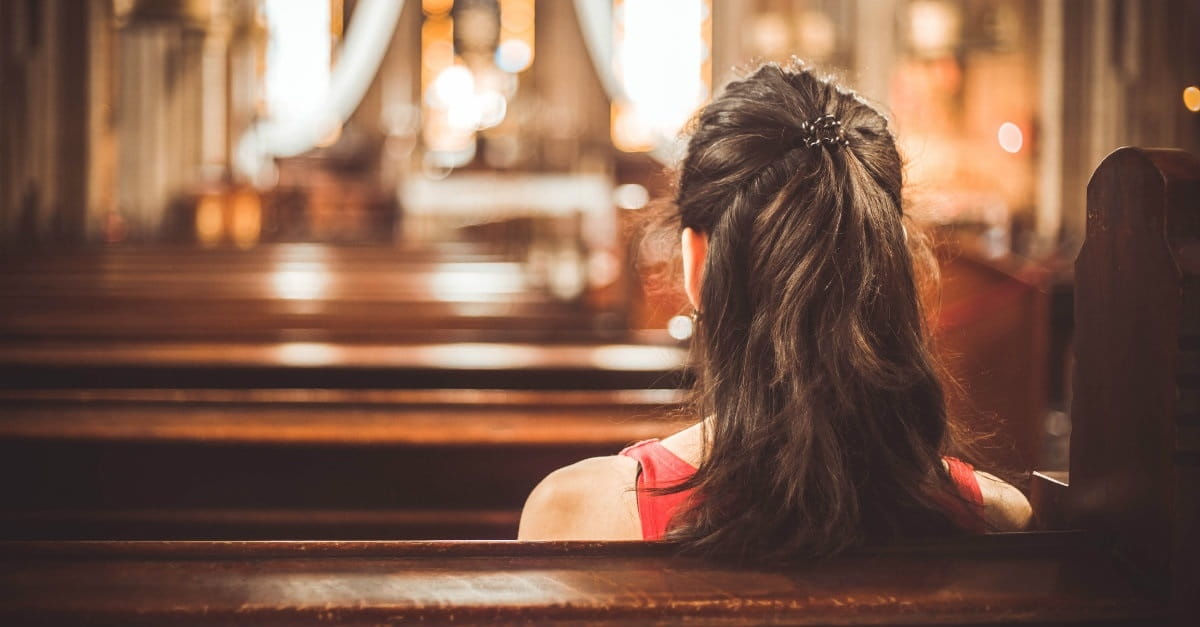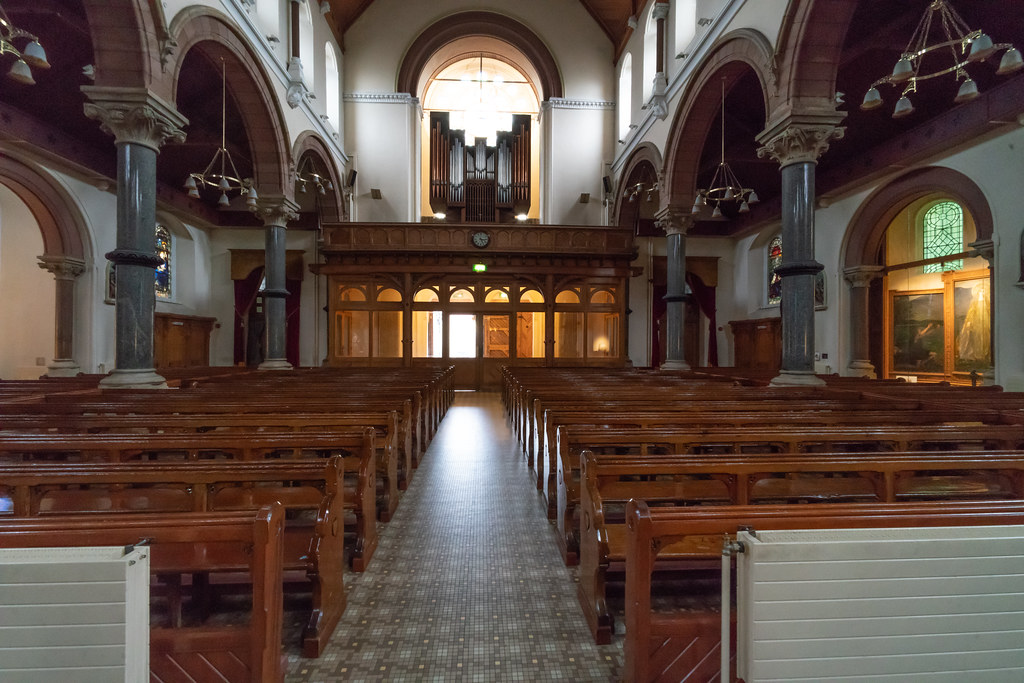Why Young Adults In America Are Less Likely To Go To Churches?
Studies have demonstrated for some time young adults in America are less likely to go to churches, believe in God, or claim religion is essential to them, despite the fact that religion is important to them.
Author:Bernard HorneApr 17, 20225K Shares335.5K Views

Studies have demonstrated for some time young adults in America are less likely to go to churches, believe in God, or claim religion is essential to them, despite the fact that religion is important to them. Although such a religious age gap does not exist in every country, according to a new Research Center research, it is far from being restricted to the United States alone.
According to Kelsey Dallas's analysis of the survey data, “The younger you are, the less likely you are to believe in God, describe yourself as spiritual or regularly pray.”
Only 21 percent of Americans between the ages of 18 and 29 say they go to churchat least once a week, and only 27 percent say they pray every day. More alarming is the fact that only 31% of young adults believe in God as He is represented in the Bible, according to the research. These figures do not portend a resurgence in the number of churches and other houses of worship in the coming decades.
According to their predictions about why young adults in America are less likely to go to churches, during the epidemic, churches will be as empty as offices will be during the pandemic.
Several Americans, according to research, have attempted to "vote our way out of this issue," but he asserts that “Political work is not the main work of the church: evangelization and discipleship is. If we don’t evangelize and disciple successfully, then there won’t be enough of us to make a political difference in our democracy.”
According to the poll, “Republicans (70%) are significantly more likely than Democrats (28%) and independents (45%) to believe someone’s politics should be influenced by their religion.”
Religious engagement, on the other hand, has been declining for decades across all demographics areas, with the exception of older Americans and Black Americans, who have seen a substantial reduction. The research shows that 40 percent of Americans attend a religious service once or twice a month, which is much lower than the 52 percent who did so in a poll conducted in 2011. It is probable that the pandemic has contributed to the drop in religious involvement; the survey of 1,653 individuals in the United States, which had a margin of error of 3.2 percentage points and was conducted in January 2022, has a margin of error of 3.2 percentage points.
Even so, historical trends are not favorable for churches in the United States, as the survey about adults demonstrates the decline in religious involvement as a function of age: Among Americans 60 and older, 43 percent indicated they attended religious services at least once a week, as did 27 percent of those between 45 and 49 years old, 25 percent of those between 30-44 years old, and 21 percent of those between 18 and 29 years old.
A second Great Awakening, in Dreher's opinion, will not be able to stem the tide of decline; his major message to American Christians is to “learn to live resiliently in a post-Christian world.”
However, there are some rays of optimism in the poll, particularly when it comes to young adults and church. For openers, only 31 percent of 18 - to 29-year-olds believe in God, with another 20 percent claiming to believe in God and another 24 percent claiming to believe in some sort of "higher force." In other words, only a little more than a quarter of people say they don't believe in God or a higher force at all.
The younger adults, in particular, are spiritual, with 57 percent identifying as such. As a result, it is not yet known as the "Secular Europe." But it's also possible that, as the saying goes, the light at the end of the tunnel is actually an oncoming train, and that we haven't fully grasped the extent to which the culture would suffer if it didn't have the cohesion and support provided by religious communities and other religious organisations.
A disturbing increase in so-called "deaths of despair" — deaths caused by drug and alcohol addiction and suicide — as well as the widespread use of antidepressants and anti-anxiety medications, according to many, suggests that they are already experiencing the consequences of this trend. Even loneliness has been labelled a public health issue in some circles. As a result of the obvious benefits of belonging to a religious group, even atheists have attempted to establish "churches," with varying degrees of successful completion.
There's good news: they don't have to build churches or other faithcommunities in order to gain the benefits of their existence. They only need to take advantage of the hundreds of thousands of resourcesthat are already available. Convincing young people that joining a faithgroup is worthwhile of their time is, perhaps, the most difficult task that church leaders must undertake. However, even regular Americans can contribute to this effort, even if it is merely by providing a good example and discussing the benefits of belonging to a religious organisation.
According to a study, nearly 8 in 10 Americans believe that their familiesare a source of moral leadership and instruction. While Christians and those who practise a religion are the most likely to say this (83 percent and 86 percent, respectively), it is also true for nearly three-quarters of those who do not profess a religion, according to the survey.
How Many Young Adults Leave The Church?
According to a new poll from Nashville-based Lifeway Research, two-thirds (66 percent) of American young adults who attended a Protestant church on a regular basis for at least a year as teenagers also admitted to dropping out for at least a year between the ages of 18 and 22.
Conclusion
If you plan to attend a religious event in the future, bring a family member with you – especially if they are between the ages of 18 and 29. And also you should be paying more attention to arranging some convincing and intriguing events for the young adults Also understanding the main reason behind why young adults in America are less likely to go to churches.

Bernard Horne
Author
In this signature of the father, Jesus, and the holy spirit. Exploring how God’s Word challenges us to live 100% according to His will so that we can come to a life of victory!
Latest Articles
Popular Articles

